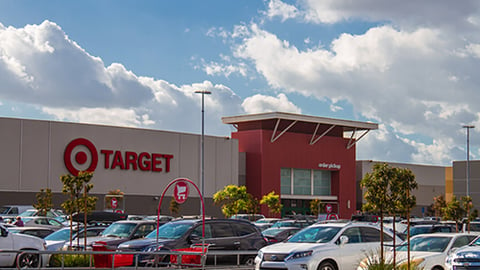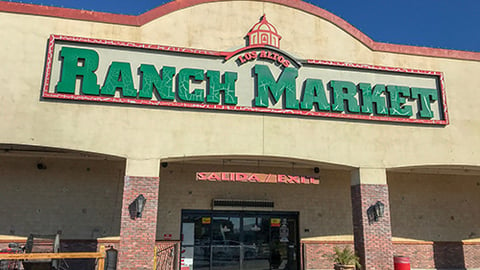Target Shines Spotlight on Latino Brands, Causes
Target has rolled out a new campaign for Hispanic Heritage Month that aims to reflect the diverse identities, experiences and cultures of the Latino community.
The retailer's new "Más Que" (more than) campaign will feature several in-store, digital and philanthropic efforts.
In stores, the retailer plans to shine a spotlight on beauty, baby and grocery brands and products founded by Latino and Latina entrepreneurs (Honey Baby Naturals, Siete Foods, Café Don Francisco and Lil’ Libros). Beauty departments at 250 stores nationwide will feature a dedicated Hispanic Heritage Month endcap through the end of October, featuring Honest Beauty (Jessica Alba); Alamar Cosmetics (Gabriella Trujillo); Botanika Beauty (Ada Rojas); and Pacinos (Eric “Pacinos” Roa).
On Target.com, a new Más Que Hub is the online destination for Hispanic Heritage Month and beyond. It features an assortment of curated products created for and by the Latino community, stickers and templates for Instagram sharing and videos spotlighting Latino and Latina artists and entrepreneurs. On the Target Fam Facebook Group, where Lil’ Libros founders Patty Rodrigues and Ariana Steiner will host live readings of their popular children’s books for the whole family. Finally, Target has partnered with mitú to spotlight real-life stories from Latinos covering everything from “Being Afro Latino” (available right here) to raising bicultural kids and entrepreneurship.
In the community, Target will continue to support the Hispanic Scholarship Fund, a relationship now in its 20th year, in addition to serving as lead sponsor for the Hispanic Heritage Foundation’s 33rd Annual Hispanic Heritage Awards, which advances Hispanic participation in corporate America. And guests in Denver will get to see a hand-painted mural by artist and activist Armando Silva, whose vibrant work depicts colors and textures inspired by his heritage, mountains and animals native to Colorado, with more art installed at six soccer play spaces around the Denver area by the end of fall. (It's also part of Target's commitment—alongside the U.S. Soccer Foundation—to create 100 mini-pitches by the end of 2020, bringing the game to communities nationwide.)
Finally, Target's Hispanic Business Council is creating a team-member panel exploring the intersection of diversity and personal identity and a virtual expo spotlighting Latino and Latina artists and entrepreneurs.
News of Target's Latino campaign comes a week after the company promised to increase representation of Black employees across the company by 20% over the next three years.
That pledge was part of the company's 2019 Workforce Diversity Report, which shows that the retailer’s workforce of nearly 350,000 employees skews white, particularly among its top executives. About 75% of its leadership team is white and 8% are Black. Its overall workforce is 50% white workers, 25% Latino and 15% Black.
Target says it has doubled representation of company non-white officers in the past five years to nearly 30%. Of that, though, only 5% are Black. It also touted diversity among store managers: More than half of its stores are run by women and a third are managed by people of color.
“Inclusivity is a deeply rooted value at Target and we’ve had an ambitious diversity and inclusion strategy for many years for our guests and team. We know that having a diverse workforce and inclusive environment not only creates a stronger team, but also provides the perspectives we need to create the products, services, experiences and messages our guests expect,” said Melissa Kremer, Chief Human Resources Officer. “The next step in this journey is being even more transparent with our progress by sharing a deeper look into the racial and gender diversity of our team, listening to our team’s feedback along the way and using this information to drive a number of new commitments for our team.”
Target's action plan for improving its diversity metrics includes:
- Leveraging stores, supply chain and HQ experiences to provide broader leadership pathways for Black team members to develop and advance
- Developing programs to hire and retain Black team members in career areas with low levels of representation, including technology, data sciences, merchandising and marketing
- Increasing Target’s network of mentors and sponsors to help Black team members accelerate and advance their careers
- Ensuring Target’s benefits and partnerships drive wellness and safety for Black team members
- Conducting anti-racism training for leaders and team members that educate, build inclusion acumen, and foster a sense of belonging
Target operates more than 1,800 stores, 39 distribution centers and Target.com. The Minneapolis-based company is No. 7 on The PG 100, Progressive Grocer's 2020 list of the top food retailers in North America.






